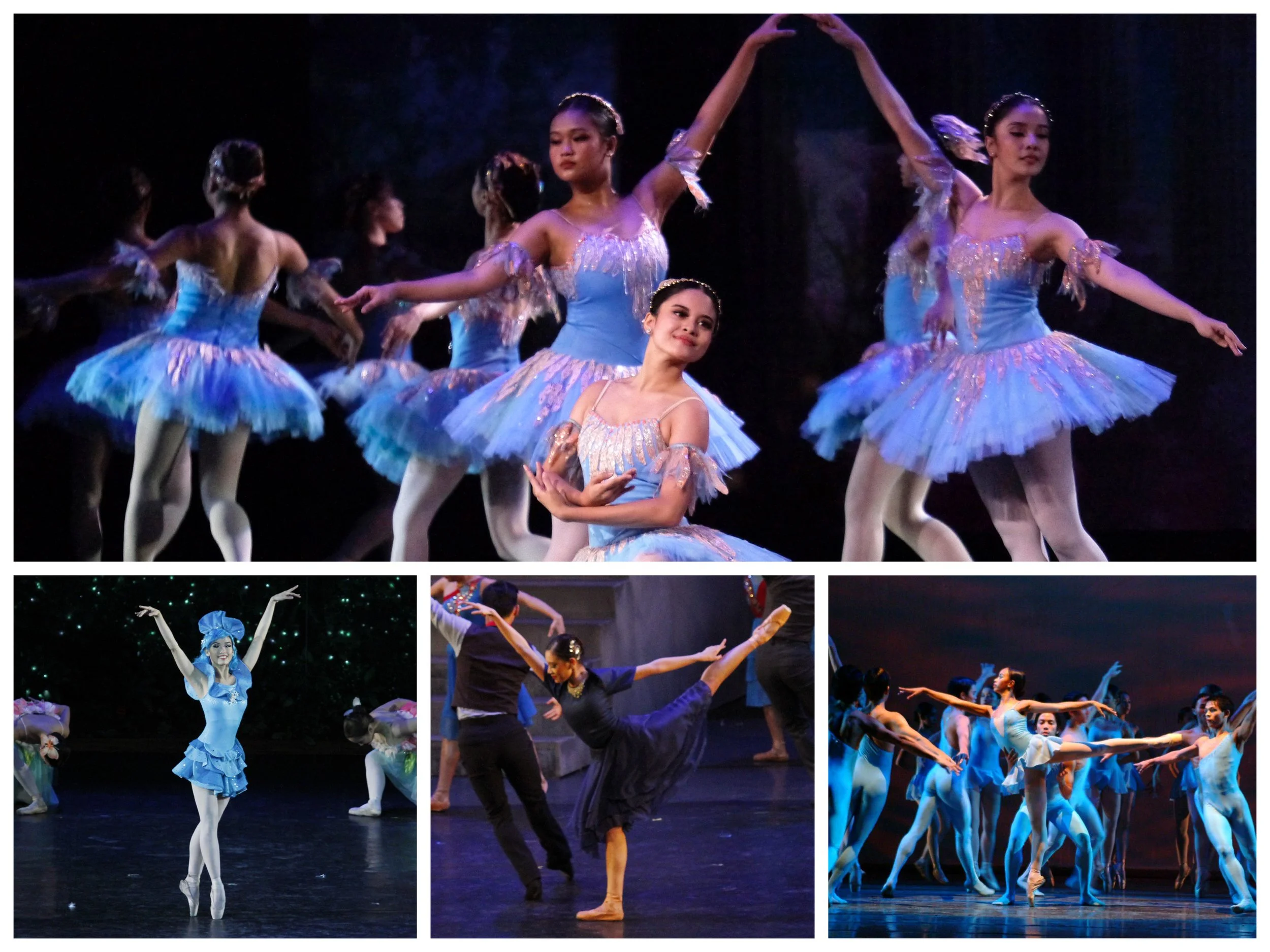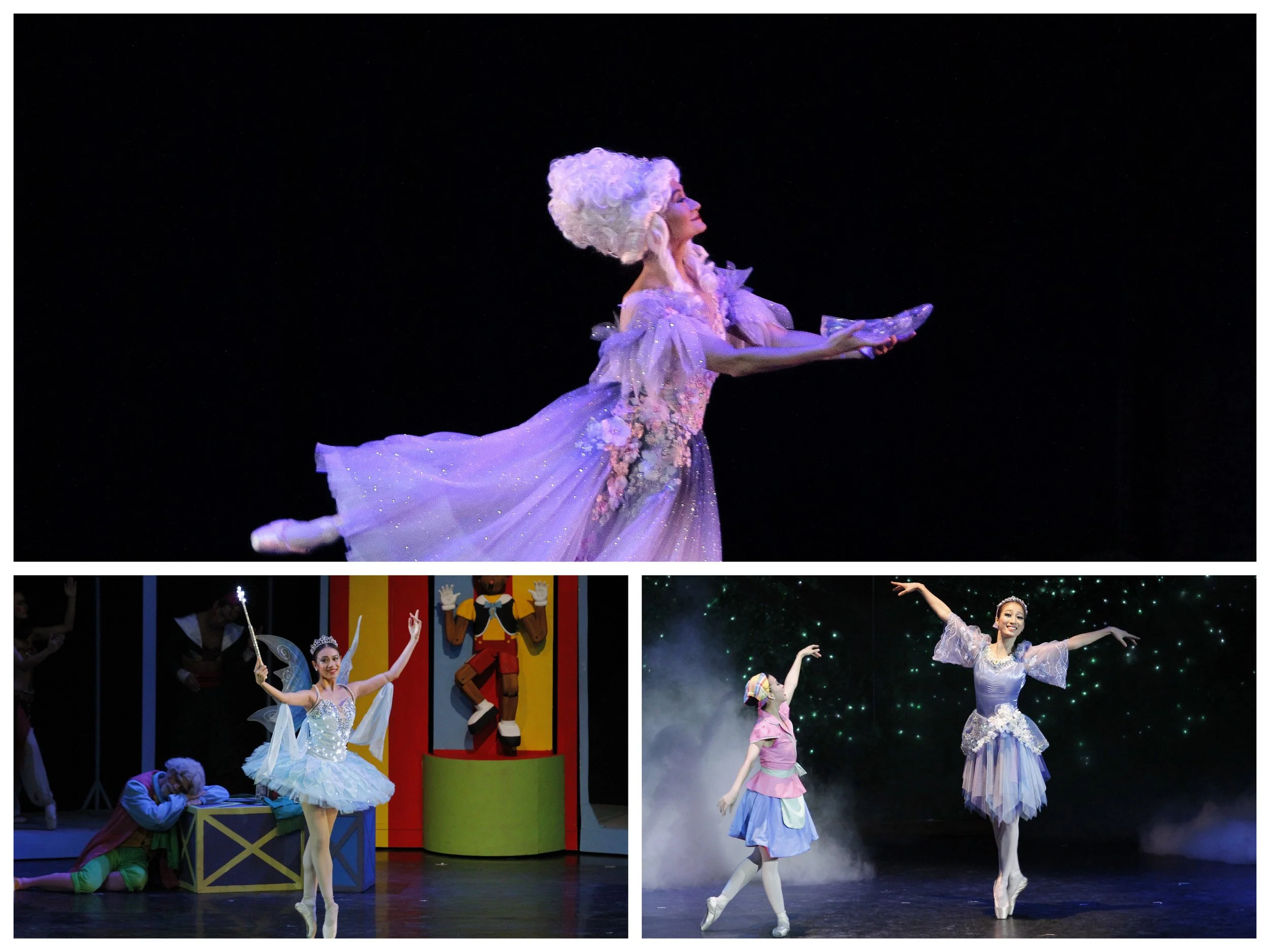For Joshua Enciso, the key to fitness is listening to your body
Joshua Enciso lifts partner Shaira Comeros with one hand in the Don Quixote grand pas de deux for a show in Iloilo. Photo by Armando Vicentino
Ballet dancers are often referred to as performing athletes. They must have the strength and stamina to withstand the demands of their profession and yet also possess the grace and poise to make it seem like what they do on stage is easy. In this series, Ballet Manila’s ballerinas and danseurs share how they stay in tip-top shape, following a fitness, diet and wellness regimen suited to their specific needs.
By Jv Ramos
In Ballet Manila’s most recent production of Romeo & Juliet, there’s a sequence wherein the real childhood photos of the lead stars – Joshua Enciso and Jessica Pearl Dames – are projected on a giant screen to establish how contrasting their characters’ upbringing is from each other. Audiences were particularly delighted by principal dancer Joshua Enciso’s photos. In his childhood to pre-teen years, he was plump and had very round cheeks that everyone around him would have probably wanted to pinch. He definitely didn’t look like he had it in him then to be a dancer.
Since he doesn’t have a danseur’s ideal body, Ballet Manila principal artist Joshua Enciso says he has had to work hard to ensure he can continue performing with the company. Photo by MarBi Photography
“Feeling ko baby fat ko lang talaga ‘yon,” comments Joshua, who explains that his chubby-cute stage ended as soon as he entered puberty. “But I would say when I started taking ballet classes, that was the turning point of the change in physique.”
Eleven years old when he began his training, this talent didn’t find it difficult to fall in love with ballet. For one thing, it offered him a safe space away from the bullies that made fun of his weight. Moreover, he genuinely enjoyed the classes and performing in front of audiences.
Recalling how his physique changed over the years, our subject shares that it took two to three years at the Southernside Montessori School Dance Theatre for him to completely lose his rounded figure and start developing a dancer's body. His being fit and lean became more defined when he began his training with Ballet Manila.
“When I came to BM, the workload was heavier than my usual routine and so my body changed accordingly,” shares Joshua, who began his training as a scholar in 2015. Back then, he didn’t really mind the lifting of female dancers. He was used to it after all as he previously had his share of lifting other dancers when he participated in cheerleading and other modern dance forms. “Sanay ako sa pagbubuhat. Ang kinailangan ko lang talaga i-develop ay ang tamang technique.” (I was already used to the lifting. What had to be developed though was the right technique.)
Developing the right technique entailed having the correct body. “Some of the senior dancers would recommend doing some extra workouts to gain some muscles necessary for partnering,” recalls the principal dancer. But Joshua knew from a young age that it wasn’t just a matter of copying one’s fitness routine. “I understood back then that every body is different from another.”
He declares, “Hindi ako gifted. Wala akong perfect body for a danseur, kaya kinailangan ko talaga mag-work hard para mapagpatuloy ko ang pag-perform ko dito sa Ballet Manila.” (I’m not gifted. I wasn’t born with the perfect body for a danseur, so I really had to work hard in order to continue performing here in Ballet Manila.)
Chubby as a child, Joshua recalls his physique changed when he entered puberty. Photo courtesy of Joshua Enciso
Part of Joshua’s hard work is taking classes seriously, which he sees as the biggest factor in improving his physique through the years, and of course, learning along the way what works and what doesn’t work for his body.
One of his biggest learnings came in 2018, when he qualified for the USA International Ballet Competition. Because he was so absorbed with the rigorous training for the international competition, along with BM productions, he lost weight drastically. “My eating habit was erratic at that time,” confesses Joshua, and as a result of his weight loss, he felt that every jump he did in the competition was patapon (wasted) because he couldn’t collect himself after.
“After the competition, Sir Geri (principal dancer and resident choreographer Gerardo Francisco Jr.) told me that I should know my proper dancing weight wherein I'm not too light nor too heavy to collect myself properly, especially in jumps and turns,” points out Joshua. “May time kasi na nangyari na rin ang experience ko sa kanya – na naging patapon ang jumps niya kasi masyado siyang magaan.” (There was a time that he also experienced the same thing I did. His jumps were just clumsy because he was too light.)
Knowing that things could be turned around, Joshua addressed his eating habits and managed his stress and energy to regain the weight he had lost. Soon, he found himself executing proper jumps and turns and putting forward his best performances in competitions and company productions.
Asked if his fitness and performance streak was ever challenged, the dancer replies yes and points to the period of lockdown, which took away his time at the ballet studio. “The pandemic was by far the most challenging time of maintaining a good physique. I was out of shape at that time, to be honest,” he admits. “But with the help of our company classes via Zoom and my demonstrating duties for the Lisa Macuja School of Ballet, my body was able to move and get its needed exercise.”
Joshua put together this clip showing moments from his fitness journey while preparing for Romeo & Juliet, culminating in opening night last February.
The Ballet Manila principal stresses that part of being a professional dancer is listening to your body. “Dapat alam mo kung kailan bumibigat na katawan mo. Kapag na-feel ko ito, binabawasan ko ang kain or mas dinadagdagan ko ang exercise.” (You have to know when your body is heavier. Whenever I do feel this, I lessen my food intake or exercise more.)
Joshua says he’s not too meticulous about his diet, reasoning that the workload in the company requires dancers to eat well to sustain their training. “I usually take just coffee in the morning, and complete rice meals for lunch and dinner. I enjoy snacks once in a while but I try to stay away from high-calorie foods.”
As for the exercise aspect, Joshua finds that his body responds well to the training he receives from BalletSportsScience which is led by coach Robert Osorio. What convinced Joshua to get into the program was a felt need to become stronger, especially for partnering, and he liked how the program is designed differently for each dancer.
During the lockdowns, Joshua took part in company classes via Zoom, setting up a barre in the garage at home. Photo courtesy of Joshua Enciso
“Coach Robert gave me a particular program to prepare me for Romeo (in Romeo & Juliet) and same goes for my role as Don Juan (in Ibong Adarna, slated in August)... So far, I feel the effect or impact of the program on my partnering!”
Speaking of partnering, Joshua shares that to be able to master it requires work beyond the studio. He advises engaging in extra workouts to gain more power, to practice partnering during one’s spare time, and to learn from people around you. “I always watch and observe other danseurs on how they do partnering and get insights from them. (It’s important to also) know the technique on how to do every partnering, may it be lifts or turns.”
He adds, “Technique is really important in partnering, and I’m really thankful that Sir Shaz (former BM co-artistic director Osias Barroso) taught us a lot about that!” Looking back, Joshua puts forward that technique and continuous practice are the vital elements that transformed his body from being a casual dancer to a professional ballet dancer.
“Becoming a principal dancer was something I never expected when I got into ballet, so I find myself really lucky to be here, dancing ballet professionally, and that’s just a good reminder for me to keep working hard,” says Joshua, whose promotion to his current position was announced late last year by artistic director Lisa Macuja-Elizalde after BM’s Cinderella run.
“I have to be fit kasi kailangan ito sa trabaho ko. That’s my main motivation,” underlines Joshua. “Being fit is really about knowing your body so you can manage it.”
Another physically challenging role awaits Joshua as Don Juan (to Abigail Oliveiro’s Adarna) in Gerardo Francisco Jr.’s Ibong Adarna. Photo by MarBi Photography






